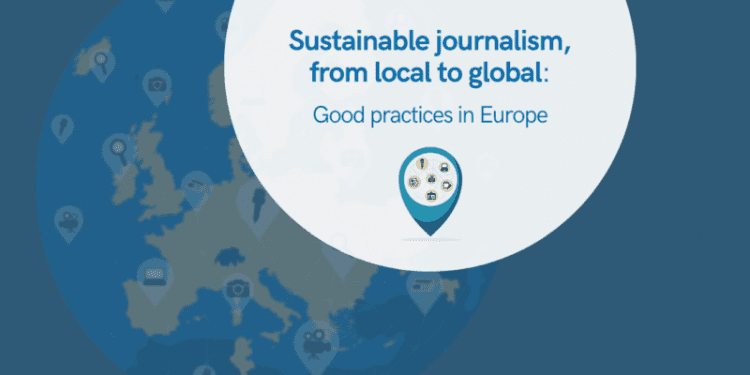The European Federation of Journalists (EFJ) has published a new report titled Sustainable Journalism, From Local To Global: Good Practices In Europe, authored by media expert Marc Gruber
The study analyses the local media landscape in Europe and highlights good practices of local and cross-border investigative journalism considered as sustainable business models.
The report shows that local journalism is an essential part of our well-informed society, in particular when it has a cross-border dimension and is carried out in partnership with similar or larger media in other countries. Local news can resonate more widely, either nationally or internationally, on matters of public interest that would otherwise remain under the radar.
However, the report sheds light on the many challenges local journalists often face. From job insecurity to precarious contracts and declining wages, they navigate a landscape of obstacles in comparison to their national and international counterparts. Their independence is also weakened by close ties with local politicians and powerful local businesses.
In the digital age, sustainability and changes in the public’s access to local information, increasingly through social media, emerge as pressing concerns. Studies show that so-called ‘news deserts,’ defined as an area that is “lacking sufficient, reliable and diverse information from trustworthy media sources,” are on the rise in Europe.
Despite these challenges, the report stresses that local media play a pivotal role in driving economic viability. By providing comprehensive coverage of local businesses and economic trends, they arm communities with the knowledge needed to make informed decisions and shape the economic trajectory of their regions.
The report includes testimonies of local journalists and media professionals who have been involved in local cross-border journalism projects in various political and economic contexts. Some are grantees of the Cross-Border Local program. They explain the benefits and challenges of working on cross-border projects and the business viability of their media outlets.
CBLocal project coordinator Ronald Tipan stressed the need to support better this important part of the media landscape:
“Cross-border journalism allows local journalists to reach a wider audience, and some investigations published can have a real public impact. It develops the profile of the journalist, who can then find easier work elsewhere. Grants are helpful, even as a ‘one shot,’ but what is important is to develop the capacities of journalists and media to monetize their activity by knowing their audience, developing ‘data harvest’ and looking for funding.”
Key recommendations for the media focus on the need for innovation, both in terms of finding new funding sources and developing network.
The recommendations for the authorities advocate for long-term support and an adequate regulatory framework, especially regarding ownership, that helps local media to thrive.
This report was carried out as part of the Cross-border Local project co-funded by the European Commission (Creative Europe). The partners are Transitions (Czech Republic), SSE Riga Centre for Media Studies (Latvia), the European Federation of Journalists (Belgium), and Journalismfund.eu (Belgium) undertook a multifaceted EUR 1.3 million program that impacted the journalism profession in Europe with grant and training programs.

 THE NATIONAL UNION OF
JOURNALISTS OF UKRAINE
THE NATIONAL UNION OF
JOURNALISTS OF UKRAINE
















Discussion about this post